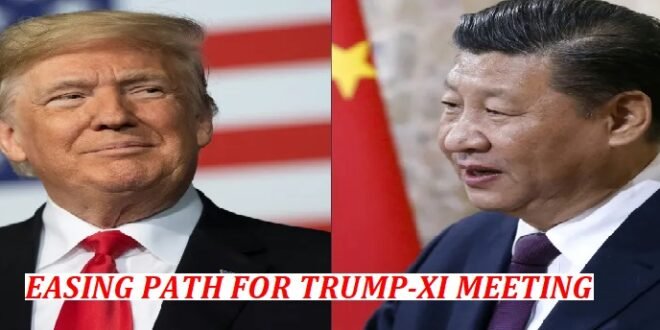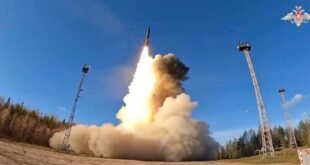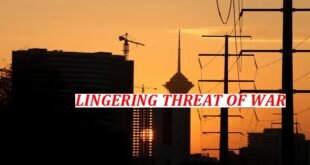29-07-2025
STOCKHOLM: Top US and Chinese economic officials met in Stockholm on Monday to resume talks to resolve longstanding economic disputes at the centre of a trade war between the world’s top two economies, aiming to extend a truce by three months.
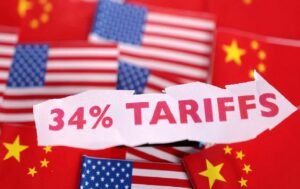 US Treasury Chief Scott Bessent was part of a US negotiating team that entered Rosenbad, the Swedish prime minister’s office in central Stockholm in early afternoon. China’s Vice Premier He Lifeng was also seen arriving at the venue on video footage.
US Treasury Chief Scott Bessent was part of a US negotiating team that entered Rosenbad, the Swedish prime minister’s office in central Stockholm in early afternoon. China’s Vice Premier He Lifeng was also seen arriving at the venue on video footage.
China is facing an August 12 deadline to reach a durable tariff agreement with President Donald Trump’s administration, after Beijing and Washington reached preliminary deals in May and June to end weeks of escalating tit-for-tat tariffs and a cut-off of rare earth minerals.
Without an agreement, global supply chains could face renewed turmoil from US duties snapping back to triple-digit levels that would amount to a bilateral trade embargo. US Trade Representative Jamieson Greer said that he did not expect “some kind of enormous breakthrough today” at the talks in Stockholm that he was attending.
“What I expect is continued monitoring and checking in on the implementation of our agreement thus far, making sure that key critical minerals are flowing between the parties and setting the groundwork for enhanced trade and balanced trade going forward,” he told media.
The Stockholm talks come hot on the heels of Trump’s biggest trade deal yet with the European Union on Sunday for a 15% tariff on most EU goods exports to the United States, including autos.
Trade analysts said that another 90-day extension of a tariff and export control truce struck in mid-May between China and the United States was likely.
An extension would facilitate planning for a potential meeting between Trump and Chinese President Xi Jinping in late October or early November.
The Financial Times reported on Monday that the US had paused curbs on tech exports to China to avoid disrupting trade talks with Beijing and support Trump’s efforts to secure a meeting with Xi this year.
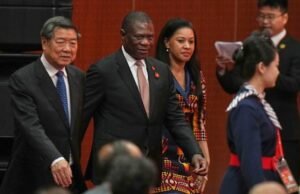 Previous US-China trade talks in Geneva and London in May and June focused on bringing US and Chinese retaliatory tariffs down from triple-digit levels and restoring the flow of rare earth minerals halted by China and Nvidia’s, opens new tab H20 AI chips and other goods halted by the United States.
Previous US-China trade talks in Geneva and London in May and June focused on bringing US and Chinese retaliatory tariffs down from triple-digit levels and restoring the flow of rare earth minerals halted by China and Nvidia’s, opens new tab H20 AI chips and other goods halted by the United States.
So far, the talks have not delved into broader economic issues. They include US complaints that China’s state-led, export-driven model is flooding world markets with cheap goods and Beijing’s complaints that US national security export controls on tech goods seek to stunt Chinese growth.
“Geneva and London were really just about trying to get the relationship back on track so that they could, at some point, actually negotiate about the issues which animate the disagreement between the countries in the first place,” said Scott Kennedy, a China economics expert at the Center for Strategic and International Studies in Washington.
Bessent has already flagged a deadline extension and has said he wants China to rebalance its economy away from exports to more domestic consumption, a decades-long goal for US policymakers.
Analysts say the US-China negotiations are far more complex than those with other Asian countries and will require more time. China’s grip on the global market for rare earth minerals and magnets. (Int’l News Desk)
 Pressmediaofindia
Pressmediaofindia
